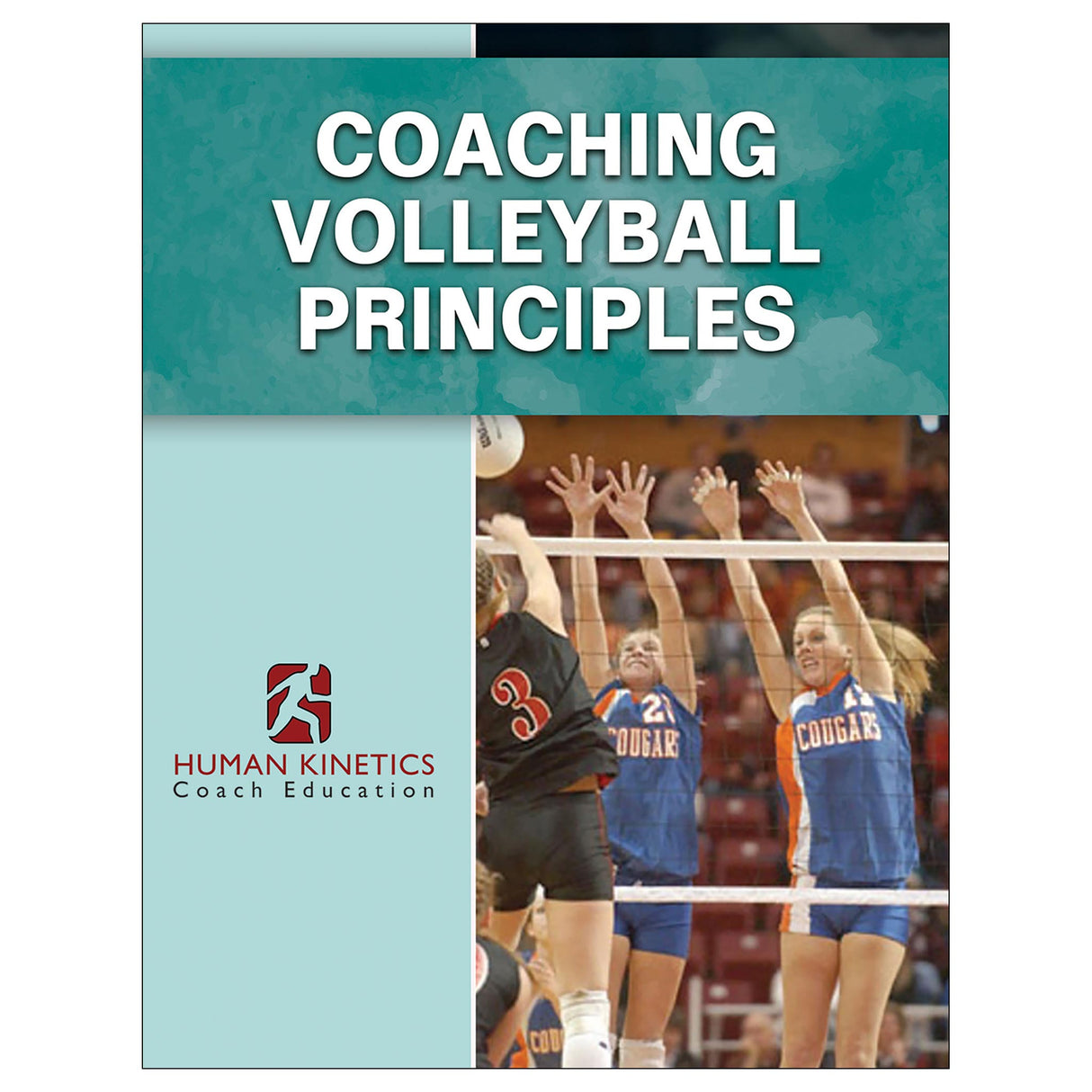Online Course
Coaching Volleyball Principles Online Course
Author: Coach Education
Regular price
$49.95
Unit price
Unavailable
Online Course
$49.95 USD
$49.95 USD
Online Course
This package includes the following:
After completing the course units, you’ll take the 50-question test online. Upon successfully passing the test, you will be entered in the National Coaches Registry, an online listing of coaches who've completed Human Kinetics Coach Education courses. Sport administrators have access to the registry, allowing them to track coaches' course completion.
Learning Objectives
After completing this course, you will be able to do the following:
- The Volleyball Handbook ebook
- Online Coaching Aids documents (PDFs)
- Online test
After completing the course units, you’ll take the 50-question test online. Upon successfully passing the test, you will be entered in the National Coaches Registry, an online listing of coaches who've completed Human Kinetics Coach Education courses. Sport administrators have access to the registry, allowing them to track coaches' course completion.
Learning Objectives
After completing this course, you will be able to do the following:
- Explain the difference between technical and tactical skills
- Implement a coaching strategy that addresses different kinds of skills (technical and tactical, communication, character, mental, physical)
- Differentiate between the traditional approach and the games approach to volleyball instruction
- Recognize opportunities to shape, focus, and enhance skills through practice activities (games approach)
- Describe how to implement an objective rating process when evaluating players’ volleyball skills
- Identify the practice and game evaluation results that coaches should compile to chart players’ successes and errors
- Explain the purpose of formal and informal evaluation of your players’ performance
- Use evaluation tools, including videotaping, to evaluate volleyball skills
- Employ consistent, positive, and effective feedback when critiquing your players
- Teach and critique proper offensive and defensive technical skills
- Incorporate drills into your practices to help players improve their technical skills
- Identify and correct errors in hand, foot, and body position
- Implement a coaching strategy that considers the most essential factors in making play decisions
- Develop effective offense and serve-receive patterns
- Teach players how to communicate effectively using verbal calls and hand signals
- Consider the most relevant factors in making decisions on your offensive and defensive systems
- Incorporate drills into your practice to help players develop defensive tactical skills
- Coach players to transition from defense to offense from various game situations
- Identify six essential steps to developing a volleyball season plan
- Apply both traditional and games approach principles to your season plan
- Create an effective, personalized, and detailed season plan for your team
- Identify factors to consider when planning and implementing practice sessions
- Explain the components of a successful practice plan
- Identify the important components in existing practice plans
- Develop and execute your own practice plans for your team
- Develop lineup strategies as part of your game-day preparation
- Communicate well with players, assistant coaches, school and community personnel, parents, officials, and the media
- Scout an opponent thoroughly and help players understand the strategies needed for an upcoming game
- Develop a specific and powerful game plan
- Conduct effective pregame meetings and warm-ups with your team
- Motivate your players to do their best at practices and games
- Observe, acknowledge, and support players during the game
- Apply honesty, fairness, consistency, and firmness to your postgame discussions
- List key activities to complete after the competition
- Apply the tactical triangle in order to make judicious decisions during a game
- Instruct your players to apply the tactical triangle to their own game decisions
- Manage special game activities such as coaching during games, charting, and timeouts
- Apply principles of role modeling, good sporting behavior, and teamwork after the game
Audience
High school coaches, serious club coaches, college and university undergraduate students, and advanced coaches at the youth level. Teaching Sport Skills
Evaluating Technical and Tactical Skills
Technical Skills
Tactical Skills
Season Plans
Practice Plans
Before the Game
During and After the Game
Practicum Exercises
Evaluating Technical and Tactical Skills
Technical Skills
Tactical Skills
Season Plans
Practice Plans
Before the Game
During and After the Game
Practicum Exercises



